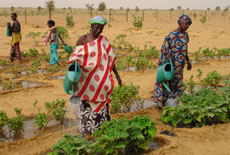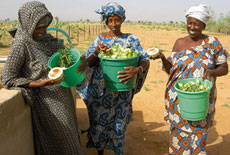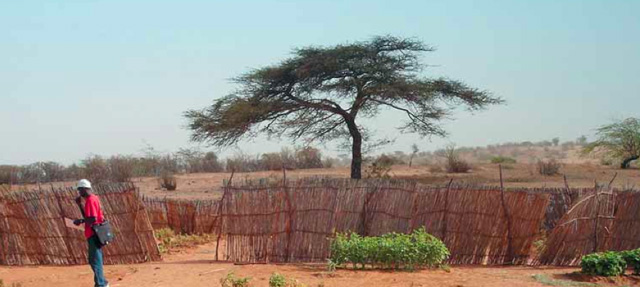Sahel Project – SilicateTechnology
The Sustainable Economy Initiative of the Austrian Federal Ministry of Transport, Innovation and Technology has developed a silicate technology to improve the water storage properties of marginal soils in the Sahel region of Africa.
The concept of the silicate consists of combining the positive aspects of two different kinds of soil.
Sandy soils have a large volume of air-filled porosity, which is needed for germination, root growth and the existence of micro organisms, but aren’t able to store any water.
Loam and clay soils store large amounts of water by capillary drawing, but their air porosity is very limited.
The new silicate can store large amounts of water, expanding its mass by several 1000%, instead of a system of capillaries, the water is kept in isolated spots, so that air porosity is unrestricted.
The substrate particles have to balance three different forces: the gravitational force (the water tending to flow off), the electrostatic force of the substrate particle (the water adhering to the surface of the particle) and the suction force of the roots (the water being drawn up by the plants). The attractive force of the particle keeps the water from running off, but is not strong enough to keep the roots from sucking up the water.
Test series proved that when the silicate is mixed into marginal soil it increases harvest results of almost all kinds of vegetable plants by 100% to 200%, compared to control plants that are grown in conventional soil.


The project worked in close cooperation with the local population, e.g., discussing their cultural preferences, traditional farming methods, and ways in which this method be both retained and improved. The shape of the material had to be adapted to the ideas of the farmers. When there was a resistance against working stones into the agricultural soil, a powder mixed with sand was well accepted as an alternitive.





Hi,
I’m from Malaysia.. Would love to commercialize this technology as it will definitely improve the environment starting the reduced number of fertilizer application to the crops..Please do contact me to discuss the matter